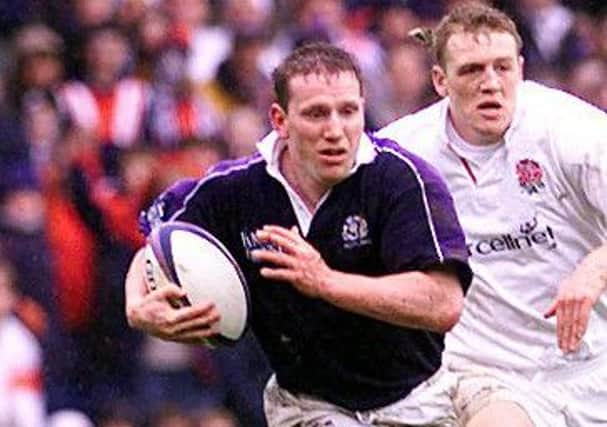Tom Peterkin: Team sport ethos is vanishing in Scotland


What is it with Scotland and team sport? The woes of Gordon Strachan’s football team reflects a wider malaise that goes right down to the grassroots.
No doubt someone will be able to produce figures that appear to show that participation in sport is on the increase. Anecdotal evidence, however, would suggest otherwise.
Advertisement
Hide AdAdvertisement
Hide AdRugby clubs that once fielded two, three or more XVs now struggle to get a team out. Cricket pitches that were once lovingly tended have fallen out of use. For various reasons Scotland is no longer the footballing nursery which produced the players who enabled our top clubs to thrive in Europe, our national side qualify for major championships and saw Scots provide the backbone for the best English teams.
The challenge of attracting youngsters to team games struck home to me at the weekend, while discussing the fortunes of a venerable sporting institution close to my heart.
Before my feeble frame succumbed entirely to flab and decrepitude, I used to turn out for Panmure RFC in Broughty Ferry. Cursed with chronic long-sightedness and a shoulder prone to dislocation, I was certainly not the club’s greatest asset (my brother was much better). But like others I was quite keen and like all who have worn the maroon jersey I thoroughly enjoyed my time with the club and its formidable social side.
Therefore I felt a little concerned when an old friend told me that the club’s most recent fixture against Kinross in Midlands Division 2 was cancelled because of Panmure’s inability to raise a side.
It was not always like this. In dim and distant days gone by, Panmure was the dominant side in Scottish rugby north of the Forth. The club still holds the record as the most prolific winner of the North of Scotland Cup – a record that will never be broken because the championship is no longer played.
Perhaps its halcyon days were before the First World War. When a North of Scotland side met the 1906 touring Springboks there were no fewer than six Panmure men in the team. When the club won the 1909 North of Scotland cup the fly-half was the Scottish internationalist and Oxford Blue George Cunningham.
Cunningham was later knighted for his service as the first Governor of the North West Frontier Province in Pakistan.
In that same team was George Cleghorn, a multiple Scottish trialist who was probably denied a cap by the war. He returned from the war with a DSO to resume captaincy of the side. His brother Charles (another Panmure stalwart) won a MC.
Advertisement
Hide AdAdvertisement
Hide AdOthers were not so lucky. RC Cunningham MC, a pre-war Panmure captain, was one of several players to die in the trenches.
Preston Watson, a member of the 1906 North of Scotland side which took on South Africa, died in a wartime flying accident. He was not just well known as a rugby player. His experiments with flight at the turn of the last century mean that to this day there are still those who believe he may have flown before the Wright brothers.
More triumphs in the North of Scotland cup were recorded before the next war broke out. After Hitler had been seen off strenuous efforts were made to resume rugby at Forthill, the ground shared by Panmure with Forfarshire Cricket Club.
Generations of stalwarts, many from the farming communities around Dundee, made sure there were many more years of fun on and off the pitch. By the time I began playing the club was feeling the effects of the teachers’ strike of the 1980s.
As an open club, Panmure was not helped by former pupils clubs opening their doors to players who did not attend their feeder schools. Dundee HSFP was embarking on its hugely impressive rise through the leagues, leaving Panmure behind. But we still put out two teams and occasionally three. There was the odd great victory – a win against Aberdeen Grammar FP (I was dropped for that one) and a triumph against Morgan FP (not selected). An equally memorable occasion was a thrashing by St Andrews University complete with Bacchanalian bus trip home. It was little consolation that their star three-quarter, Damian Hopley, would win England caps a couple of seasons later.
These rheumy-eyed reminiscences may seem a little self-indulgent, but my weekend conversation did make me think it is a shame a club that survived two world wars should be struggling now.
My informant tells me that there is a nucleus of committed and good players – but the squad is not quite large enough to get through a hard season unscathed.
The club itself has been making enormous efforts to get the numbers up. A mini-rugby set up, which introduced the Scotland captain Andy Nicol and his fellow internationalist Jonny Petrie to the game, is thriving.
Advertisement
Hide AdAdvertisement
Hide AdLinks have been forged with Dundee and Angus colleges as well as Dundee University medics. Panmure provides coaching at primary schools in the Ferry and its unpaid volunteers have played a key role in getting rugby on the curriculum at the local secondary school Grove Academy for the first time in decades.
But these challenges are not unique to Panmure. In this internet age of competing distractions, it seems that something of the team sport ethos has been lost from the grassroots. That is a great pity and something sports ministers Shona Robison and Aileen Campbell might care to reflect on.